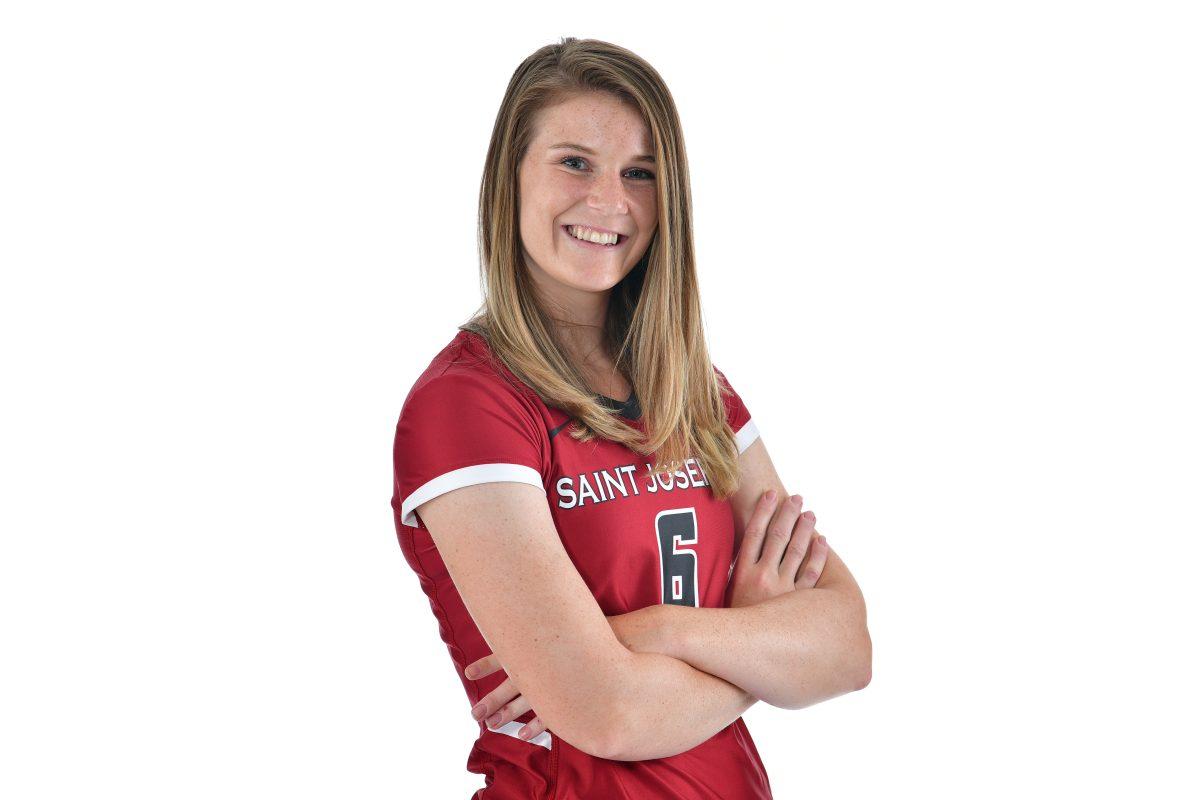St. Joe’s field hockey with strong international presence
The St. Joe’s field hockey team has the largest international player presence of any Division I Hawk team.
The seven student athletes come from a variety of countries such as New Zealand, Germany, Scotland and Argentina. They have found difficulty in adjusting to a new culture in the United States.
Encouraging unity on a team with diverse backgrounds is part of the program’s culture, according to Head Coach Lynn Farquhar. The team’s goal is to push each other while also being able to provide a comfortable environment.
“We really promote the ability for our student athletes to come in and contribute to the program,” Farquhar said. “They’re the ones making the decisions on the field. They’re the ones who have the ability to connect and take us to the next level.”
Junior goalkeeper Victoria Kammerinke, who is originally from Kaarst, Germany, said the players’ diverse backgrounds do not affect the team’s dynamic.
“I feel like we’re in such a great environment where everyone takes care of each other,” Kammerinke said. “It all comes together. We feed off the differences.”
For players growing up overseas, Farquhar said field hockey is the equivalent of what baseball or football is in the United States. It’s ingrained in the culture.
Senior forward Anna Willocks, who hails from Palmerston North, New Zealand, said the sport has a different type of energy at the collegiate level.
“One of the awesome things about the college environment is how intense it is,” Willocks said. “Here, we put in such a large amount of effort and work.”
Willocks is a player that the young international players look up to. This is also true for freshman back Lorna Crawford, a native of Edinburgh, Scotland.
“I have the utmost respect for all the returning international players,” Crawford said. “Anna [Willocks] especially, but all of them. Their work ethic, what they’ve done for the program; it’s so easy to look up to them.”
Willocks naturally relates to the young international players because she went through the same thing.
“I know exactly what they’re going through,” Willocks said. “I’m similar to them because I often times get very home sick. I always want to be there for the other internationals so they feel at home and have a family.”
Farquhar said that officially providing mentors for the young international players is something the program is working on, however, the entire team acts as a support system.
“Our older returners are responsible for helping out with our younger players,” Farquhar said. “Our whole team takes care of each other. No matter where they’re from, they have a connection.”
Farquhar and her staff approach recruiting international student athletes the same way as they do players from the U.S.
“The core for all of our recruiting revolves around character and a fit for our program,” Farquhar said. “Not just playing style but also our culture. That’s the most important thing, whether it’s going to be an international or domestic player.”
The players from the U.S. have provided a support system for their international teammates. None of the international players have any family in the United States.
Junior midfielder Courtney Gerber and junior forward Corinne Gerber have played a significant role in doing so. During any break in the academic year, junior midfielders Pepa Serrano and Kathrin Bentz, who are from Buenos Aires, Argentina and Hamburg, Germany respectively, stay at their house.
“They don’t have family here so it’s nice for them to have a support system besides just the team,” Courtney Gerber said. “Our parents along with our grandparents have grown very close to them.”
Making everyone feel like they’re a part of one team is a difficult task and doesn’t come naturally, according to Farquhar. It’s something the team continues to work on.
“You’re creating a new dynamic and everybody has different roles to help with on and off the field,” Farquhar said. “Players bring their own strengths so we can combine those strengths. Teams are tough yet really fun and it’s about piecing a lot of those components together.”







































